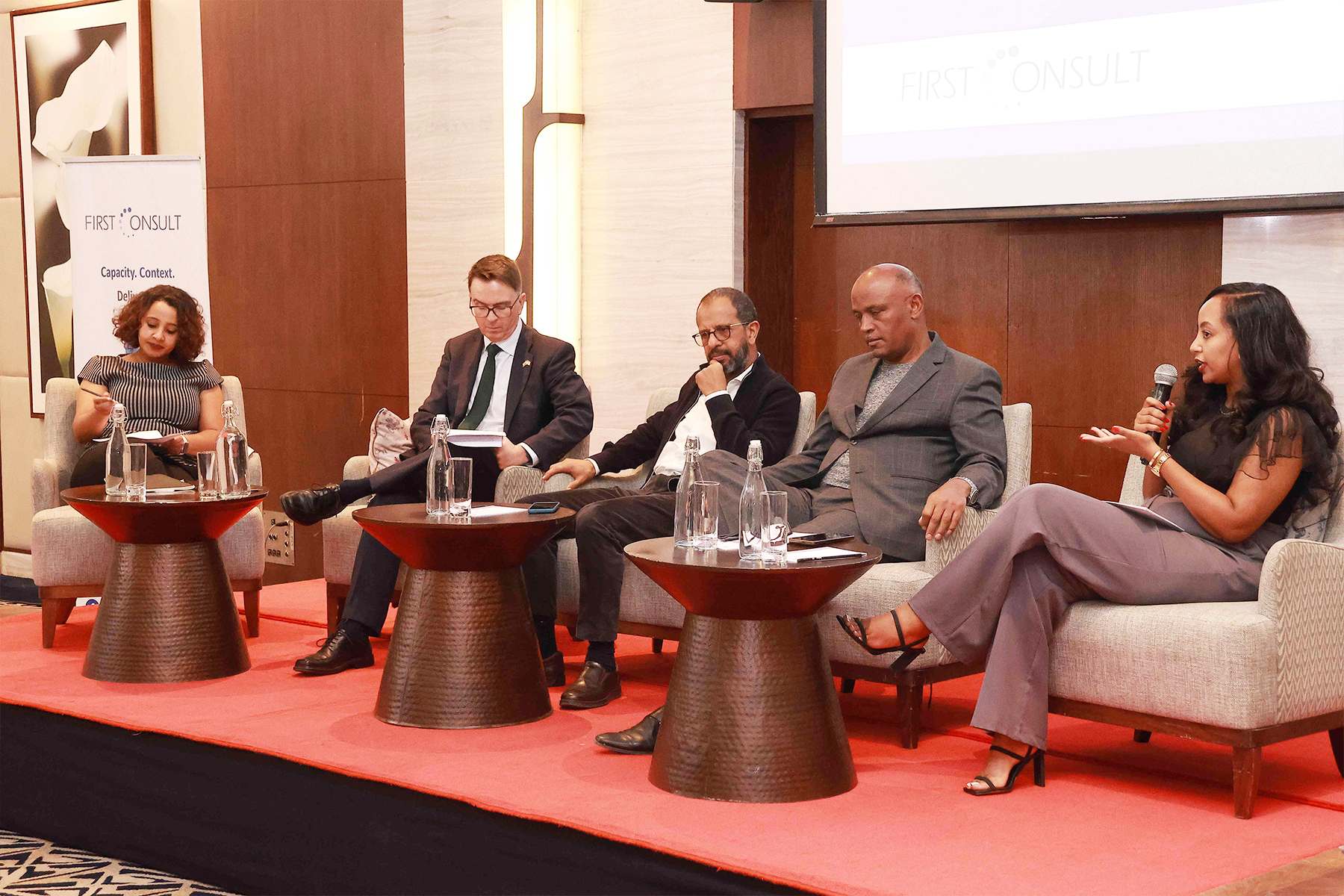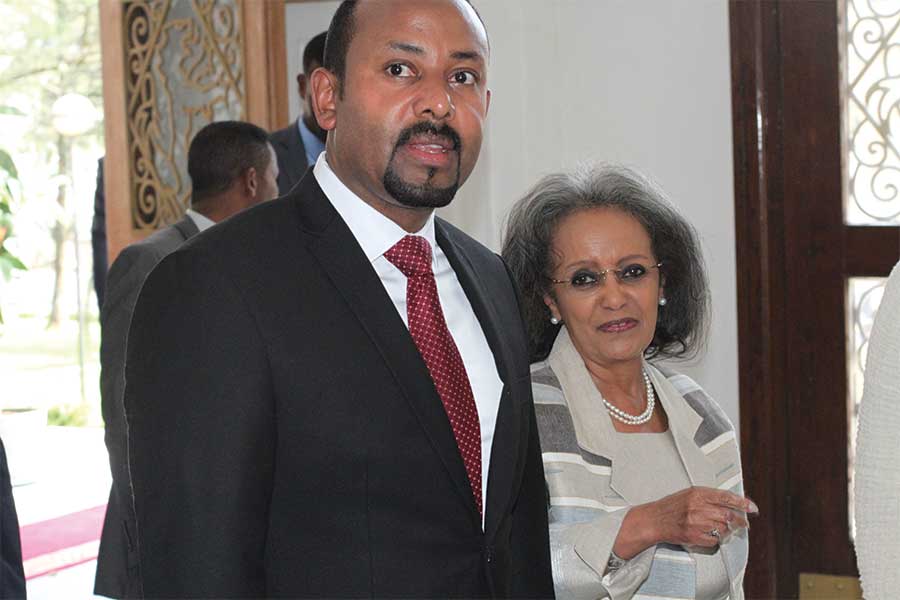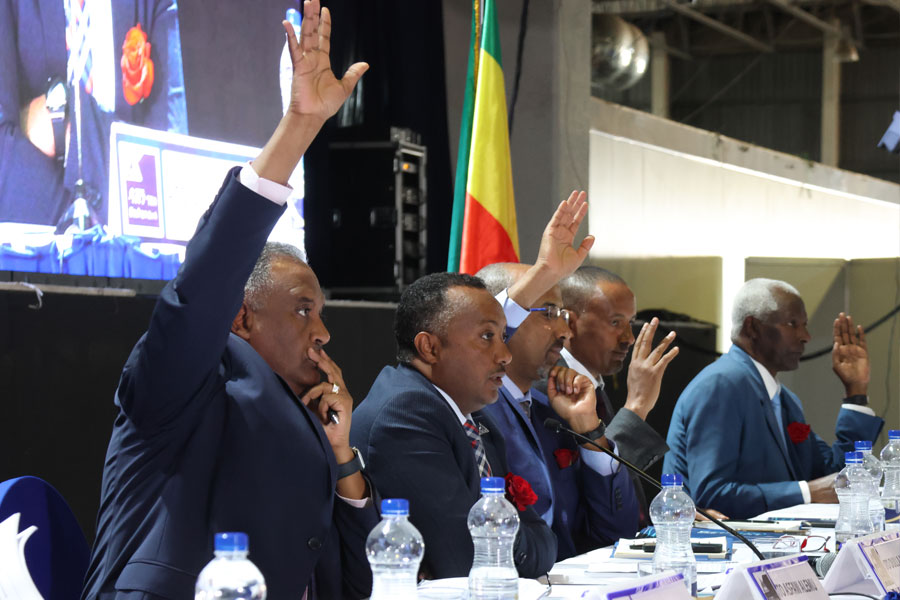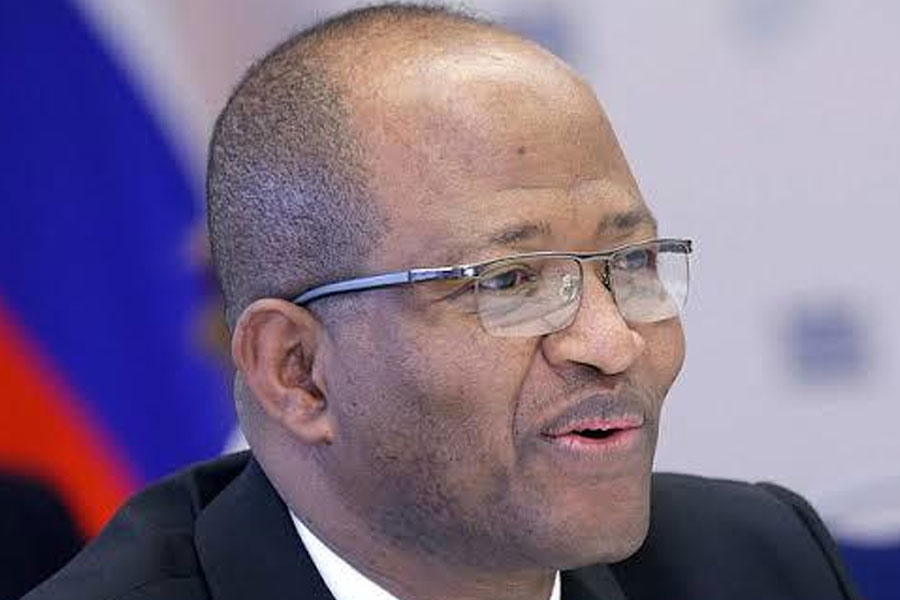
Viewpoints | May 11,2019
Jan 13 , 2024
By Carla Norrlöf
Understanding the new global order is crucial in a world where hot wars and great-power standoffs knot with economics. The interplay between geopolitics and the global economy has never been more relevant, as seen in the far-reaching effects of conflicts like the Russian invasion of Ukraine and the situation in Gaza. This complexity demands our attention, writes Carla Norrlöf, professor of political science at the University of Toronto, in this commentary provided by Project Syndicate (PS).
The global order is undergoing significant changes that demand a new economic-security agenda. From hot wars and localised insurgencies to great-power standoffs, geopolitical conflict has made the complex relationship between economics and security a daily concern for ordinary people everywhere. Complicating matters even more is the emerging markets gaining economic clout and directly challenging traditional powers' longstanding dominance through new networks and strategic alliances.
These developments alone would have made this a tumultuous period marked by economic instability, inflation, and supply-chain disruptions. But one also must account for rapid technological advances – which have introduced new security risks (such as arms races and cyber threats) – as well as natural risks such as pandemics and climate change.
To navigate this dangerous new world, we must reckon with three interrelated dimensions: the effects of geopolitics on the global economy; the influence of global economic relations on national security; and, the relationship between global economic competition and overall prosperity.
Each pathway sheds light on the multifaceted interplay between economics and security. We will need to understand all of them to tackle the varied and complex challenges presented by our highly interconnected global system.
As recent years have shown, geopolitics can profoundly affect the global economy, reshaping trade, investment flows, and policies sometimes almost overnight. Aside from their devastating human tolls, wars like the Russian invasion of Ukraine and Israel's campaign in Gaza often reverberate far beyond the immediate theatre of conflict.
Western-led sanctions on Russia, and the disruption of Ukrainian grain exports through the Black Sea, caused energy and food prices to soar, resulting in supply insecurity and inflation on a global scale. China has deepened its economic relationship with Russia following the mass exodus of Western firms in 2022 and 2023. Similarly, Israel's bombing of Gaza has established the entire Middle East, especially tourism-dependent neighbouring countries such as Egypt, Jordan, and Lebanon.
Yemeni Houthi rebels, long supplied by Iran, have been attacking cargo ships in the Red Sea, leading international shipping firms to suspend or adjust their routes, and directly impending trade through the Suez Canal – a major artery of global commerce.
We are witnessing the destabilising effects of natural threats as well. The COVID-19 pandemic drove a massive shift away from cost-effective "just-in-time" supply chains to a "just-in-case" model to strengthen resilience during disruptions. And, more recently, an El Nino-induced drought has diminished the capacity of the Panama Canal – another major artery of global commerce. Whether for geopolitical or ecological reasons, rerouting around these new bottlenecks inevitably increases shipping costs, causes delivery delays, disrupts global supply chains, and creates inflationary pressure.
Turning to the second dimension – the implications of global economic relations for national security – it is clear that countries will be more likely to adopt bold or aggressive security policies if they already have a web of economic ties that can either attract, support or dampen opposition. China, for example, is counting on economically dependent countries within its Belt & Road Initiative to accept its political influence and longer-term bid for hegemony.
Many countries also now rely on China for critical defence-related supply-chain components, which leaves them vulnerable diplomatically and militarily.
More broadly, global connectivity, in the form of economic networks and infrastructure, is increasingly being weaponised for geopolitical ends. As Russia's war on Ukraine shows, economic ties can create dependencies that raise the cost of opposing assertive security policies (or even outright aggression). The implicit threat of supply disruptions has a coercive – sometimes quite subtle and insidious – effect on a country's national security objectives.
Owing to the network effects of the dollar system, the United States retains significant leverage to enforce international order through coercive sanctions against states that violate international norms. Trading with the enemy can be lucrative, or simply practical, but it also alters the distribution of power. As Western governments learned over the past two decades, the advantages conferred by technological superiority can be substantially offset by forced technology transfers, intellectual property theft, and reverse engineering.
The third dimension – the relationship between global economic competition and prosperity – has been complicated by these first two dynamics because the pursuit of material well-being must now be weighed against security considerations. Discussions in this area thus centre around economic security in the form of stable incomes and a reliable supply of the resources needed to support a given standard of living.
Donald Trump's "Make America Great Again" slogan and President Joe Biden's "Build Back Better" plan reflect concerns that economic relations with China harm US prosperity.
The challenge for the US and its allies is to manage the tensions between these varying economic and security objectives. There is a potential conflict between adapting to market- and geopolitically-driven shifts in economic power and sustaining the economic strength to finance a military force capable of protecting the global economy. As the dominant power, the US must remain willing and capable of preserving an open, rules-based global economy and a peaceful international order. That will require additional investments in military capabilities and alliances to counteract territorial aggression and safeguard sea lanes, as well as stronger environmental policies and frameworks to distribute global economic gains according to market principles.
By attempting to mitigate security risks through deglobalisation (reshoring, onshoring, and "friend-shoring"), we risk adding to the economic and security threats presented by a more fragmented world. Though economic ties with rivals can create dangerous dependencies, they can also safeguard against hostility.
All governments will need to grapple with these tensions as they develop a new economic-security agenda. The world is quickly becoming more adversarial and fraught with risk. To optimise security and prosperity, we will have to understand the complex interplay of forces that are creating it.
PUBLISHED ON
Jan 13,2024 [ VOL
24 , NO
1237]


Viewpoints | May 11,2019

Fortune News | Apr 06,2024

Fortune News | Oct 05,2025

Viewpoints | Jan 13,2024

Fortune News | Oct 12,2019

Commentaries | Aug 25,2024

Radar | Sep 08,2024

Commentaries | May 25,2024

News Analysis | Oct 27,2024

Verbatim | Dec 31,2022

Photo Gallery | 177797 Views | May 06,2019

Photo Gallery | 168011 Views | Apr 26,2019

Photo Gallery | 158717 Views | Oct 06,2021

My Opinion | 137011 Views | Aug 14,2021
Commentaries | Oct 25,2025

Dec 22 , 2024 . By TIZITA SHEWAFERAW
Charged with transforming colossal state-owned enterprises into modern and competitiv...

Aug 18 , 2024 . By AKSAH ITALO
Although predictable Yonas Zerihun's job in the ride-hailing service is not immune to...

Jul 28 , 2024 . By TIZITA SHEWAFERAW
Unhabitual, perhaps too many, Samuel Gebreyohannes, 38, used to occasionally enjoy a couple of beers at breakfast. However, he recently swit...

Jul 13 , 2024 . By AKSAH ITALO
Investors who rely on tractors, trucks, and field vehicles for commuting, transporting commodities, and f...

Oct 25 , 2025
The regulatory machinery is on overdrive. In only two years, no fewer than 35 new pro...

Oct 18 , 2025
The political establishment, notably the ruling party and its top brass, has become p...

Oct 11 , 2025
Ladislas Farago, a roving Associated Press (AP) correspondent, arrived in Ethiopia in...

Oct 4 , 2025
Eyob Tekalegn (PhD) had been in the Governor's chair for only weeks when, on Septembe...

Oct 25 , 2025 . By YITBAREK GETACHEW
Officials of the Addis Abeba's Education Bureau have embarked on an ambitious experim...

Oct 26 , 2025 . By YITBAREK GETACHEW
The federal government is making a landmark shift in its investment incentive regime...

Oct 27 , 2025
The National Bank of Ethiopia (NBE) is preparing to issue a directive that will funda...

Oct 26 , 2025 . By SURAFEL MULUGETA
A community of booksellers shadowing the Ethiopian National Theatre has been jolted b...